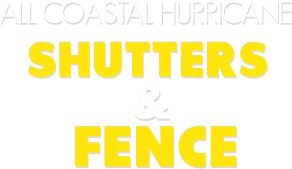
Hurricane Facts & Tips
Hurricane Season stretches from June through November
When a hurricane strikes, it can bring with it the tragedy of lost lives, damaged property, and people rendered homeless. Yet, even though hurricanes can't be stopped, there are some things you can do to cope with disaster if it strikes.
Whether it's before, after or even during a hurricane, there are things that you can do to help protect yourself and your family. The following information is designed to give you some important things to remember during hurricane season.
One of the most important steps is to plan ahead. Don't wait for the weather forecast to pinpoint a hurricane near your home. Take some time to carefully review potential problems and solutions so that you and your family will know how to cope with a violent storm.
Before the Hurricane
Preparing for the Storm: Defenses against a storm surge are few. Although sea walls and strongly constructed buildings offer some protection, it is a good idea to take some time to consider the following safety precautions.Be alert to hurricane and tropical storm advisories. Listen to television reports, local radio, or the National Oceanic Administration & Atmospheric (NOAA) Weather Radio to get information about storms. Don't pay attention to rumors.
Don't get stranded. Get away from low-lying beaches or other locations which may be affected by high tides or storm waves. Tides created by the storm surge cause most hurricane related deaths. If your escape route is over a road or bridge likely to be under water, leave early.
Protect windows with storm shutters.
Secure loose objects in your yard. Anchor them steadily or move them indoors.
Keep on hand nonperishable food which can be eaten without cooking. Gas and electric services necessary for refrigeration and cooking may not be available during and after a hurricane.
Store drinking water in case the public water supply becomes contaminated.
Check flashlights or other emergency lights to make sure they are in working condition. Keep extra batteries on hand. Also have an ample supply of candies.
Keep a battery-operated radio on hand and maintain a fresh supply of extra batteries.
Fill your bathtub with extra water for flushing the toilet.
Gas up your car. If electrical power is off service stations may not be able to operate pumps. Also make sure you have jumper cables.
Take an inventory of your household. A special brochure titled, "Your Household Inventory Record" is available from your Allstate agent that will enable you to make a concise record of your belongings. We also recommend that you video tape your entire household contents for record purposes.
Leave your mobile home. Mobile homes are extremely vulnerable to high winds. If you live in one, leave it for a more substantial shelter. Make sure you check and secure your tie-downs.
Secure your boat or evacuate it to a safe area. Once secured, leave it and don't return until winds and tides have diminished.
During A Hurricane
Attempt emergency road repairs only when absolutely necessary - and with extreme caution. The best time is during the "eye" of the storm when the wind dies down. But remember this is only a temporary calm and the winds will return from the opposite direction, often with more force than before.Stay home if your house is out of danger. As long as it's sturdily built, it's probably the best place to weather the storm. Try to keep near the downwind side of the house, and stay away from windows and glass doors. If you live in high-rise, check with your building superintendent to determine whether your building can withstand high waves and strong winds.
Stay indoors unless you're told to evacuate. Travel is extremely hazardous when winds and tides are whipping through your area.
After A Hurricane
It comes as no surprise that even the aftermath of a hurricane can be dangerous. The following outlines some of the most important things to do after the storm has passed.Beware of damaged utilities - Watch out for loose or dangling electric power lines. Many lives are lost by electrocution after hurricanes. Also, beware of natural gas leaks. Report all gas and electrical problems to the proper authorities.
Walk and drive cautiously - Debris-filled streets are dangerous. Snakes and poisonous insects may be a hazard. Washouts may weaken roads and bridge structures, and they could collapse under vehicle weight.
Be aware of spoiled food - Food may spoil if refrigerator power is off more than a few hours. Freezers will keep food for several days if doors are not opened after power failure, but do not re-freeze food once it begins to thaw.
Do not use water until it's safe - Use your emergency supply or boil water before drinking until you receive official word that the water is safe. Report broken sewer or water mains to the proper authorities.
Take extra precautions to prevent fire - Lowered water pressure in city mains and the interruption of other services may make fire fighting extremely difficult after a hurricane.








